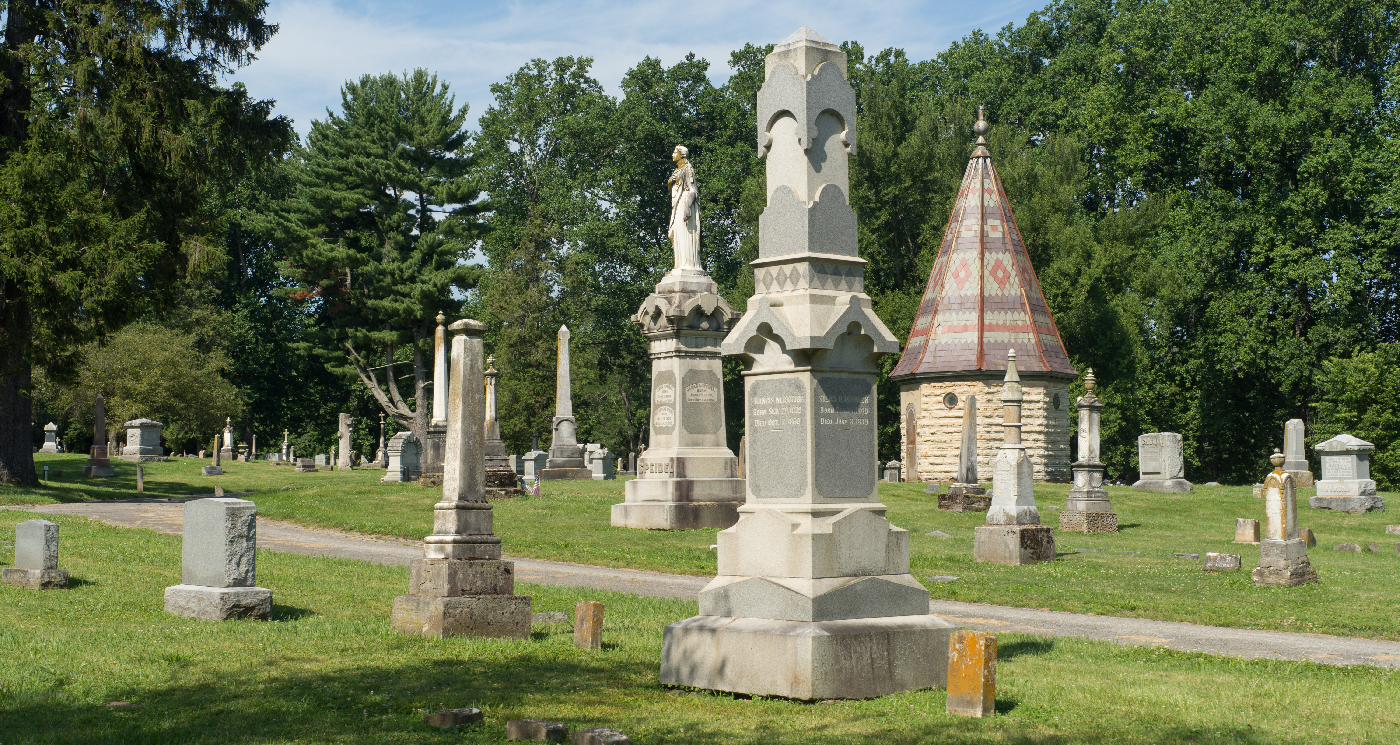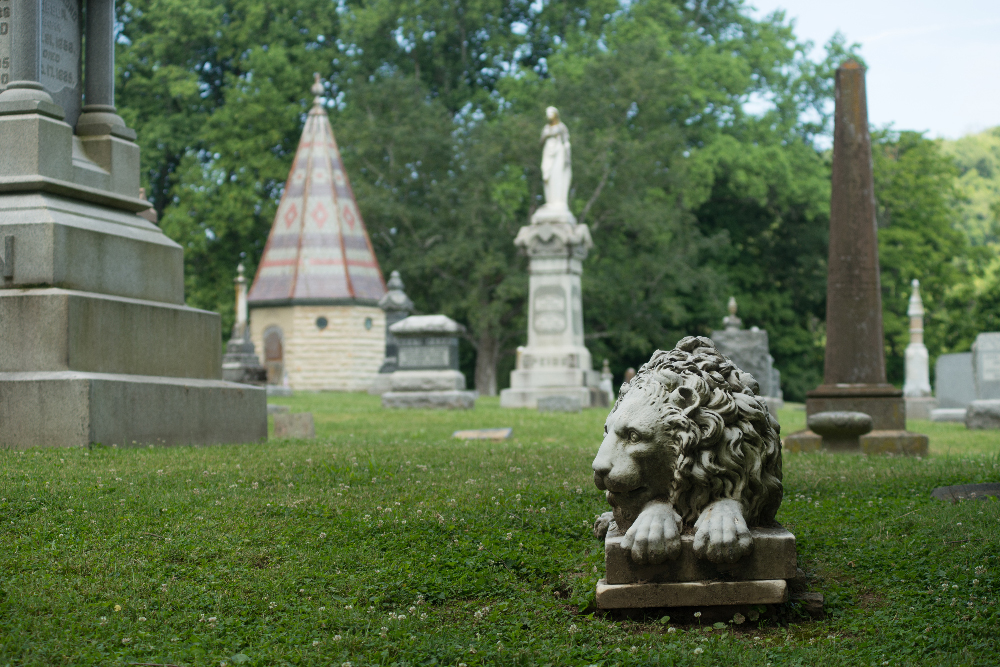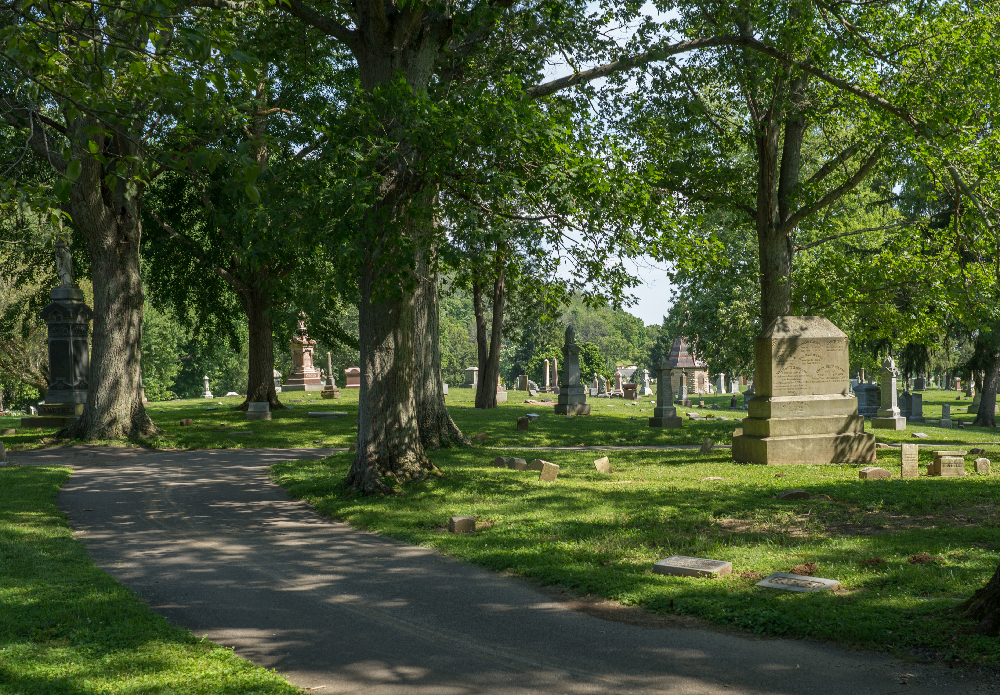NEWS
Rural Cemeteries Weren’t Meant to Be Scary
Aurora’s River View Cemetery offers a peaceful retreat and lessons in local history.

Designed for Tranquility
Cemeteries get a lot of attention this time of year, usually as the setting for ghost stories and scary movies. But cemeteries weren’t always regarded as eerie or haunted places. In fact, in the mid-nineteenth century, picturesque rural cemeteries such as River View in Aurora were meant to be enjoyed – peaceful, pastoral settings where the combination of nature and monuments offered spiritual uplift.
Opened in 1869, River View Cemetery is a quintessential Victorian rural cemetery. Architect William Tinsley, an Irishman who immigrated to Cincinnati, designed the graveyard named for its views of the Ohio River.
Renowned in the Midwest, Tinsley’s other work includes Christ Church Cathedral on Monument Circle in downtown Indianapolis, Calvary Church in Cincinnati, and several buildings on the original campus of Butler University.
His design for River View incorporated meandering drives, diverse plantings, and radial burial arrangements, all of which contribute to a rustic park-like landscape characteristic of the rural cemetery movement. Historic monuments and features abound at Riverview, including several that predate the cemetery: Tinsley incorporated two undisturbed prehistoric mounds.
River View’s collection of gravestones and monuments spans 150 years of stylistic development. Monuments from the late nineteenth century include obelisks, urns, angels, even lions. The cemetery features several examples of limestone “tree trunk” markers, a regional element associated with the craftsmen of southern Indiana’s limestone quarries.

Markers display the names of the people and families who played important roles in the development of Aurora and Indiana. Several large monuments – including one for the Holman Family of Veraestau – anchor family plots. The stone obelisk Backman Monument marks the grave of John J. Backman, manager of the Gaff Distillery, one of Aurora’s most prominent nineteenth century businesses.
Notables from outside Aurora show up at River View as well, several removed from their original locations and reinterred in River View’s more fashionable surroundings. The widow of Stephen Speakman – namesake of Ohio County’s Speakman House, an entry on our 2017 Most Endangered list – had his remains moved from a family plot on the house’s grounds to a lot in the cemetery just across Laughery Creek.
A memorial on the cemetery’s southeastern edge commemorates the 1781 “Lochry Massacre,” a Revolutionary War battle on nearby land between Archibald Lochry’s Pennsylvania militia and local British-allied Native American tribes. Later additions illustrate the development of architectural design and funerary tastes through the late nineteenth and early twentieth centuries.
The 1877 hexagonal McHenry mausoleum captures the romantic, aesthetic principles of Victorian rural cemeteries with its steep conical roof and patterned multi-color slates. A distinctive 1889 Romanesque Revival red brick wellhouse sits along the bank of Laughery Creek. In 1897, the Grand Army of the Republic, a Civil War veterans organization added the Soldier’s Circle in the southeast portion of the cemetery . A 1906 Craftsman-style tile-roofed chapel sits near the cemetery entrance.

You’ll discover many more historic and artistic features in a walk through River View’s peaceful and idyllic acreage. The cemetery is especially beautiful in the autumn, when mature trees take on fall colors. The cemetery welcomes visitors to explore the rich history on display.
River View Cemetery earned listing in the National Register of Historic Places in 2013, recognizing its status as one of the state’s best examples of the “rural cemetery” movement.
For more information, contact River View Cemetery, 812-926-1496.
Stay up to date on the latest news, stories, and events from Indiana Landmarks, around the state or in your area.
